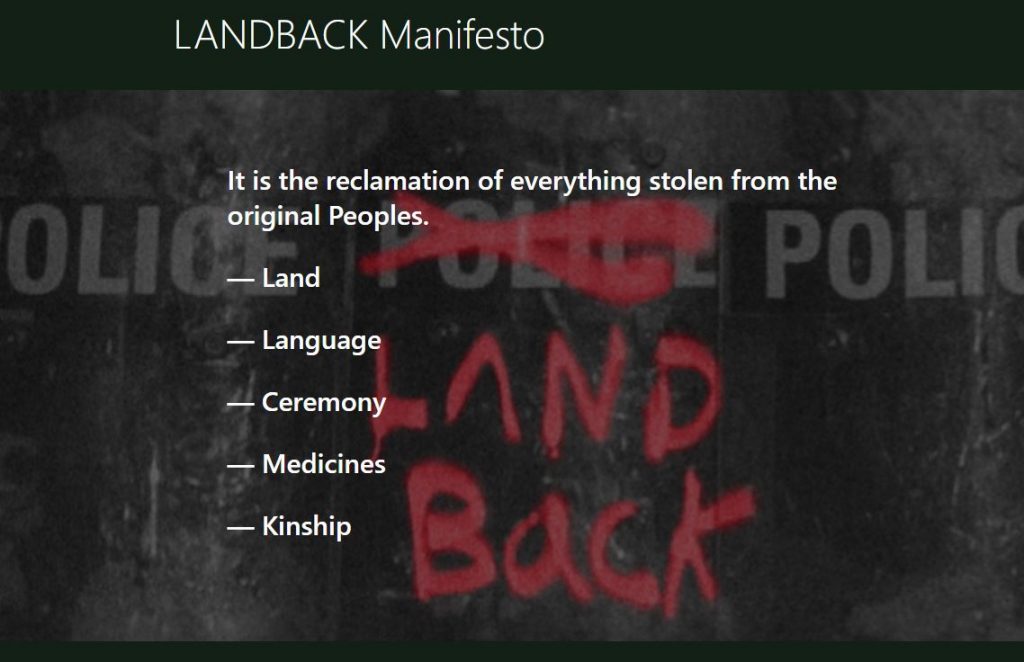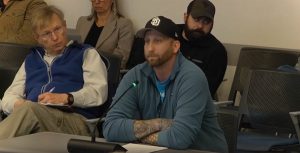Public comment to the Eugene City Council Oct. 11, 2021
7 min read
This week the public commented on The Red Deal; a fair deal, an open pit mine; the armpit of Eugene; CAHOOTS; and killer school bus fumes.
Here’s a recap of public comment on Indigenous People’s Day.
Lin Woodrich: My name’s Lin Woodrich. I’m the Active Bethel Community co-chair reminding you again of the importance of an area plan for Bethel. We’ve been neglected for almost 40 years, and the neighbors need to have a voice in the future of Bethel. Today, I spoke to a Highway 99 business owner. He’s fed up with the way the city has located the homeless and criminal services along our Highway 99 corridor. We’re hoping to begin our planning in the near future, but the fear that the way Bethel is viewed as the armpit of Eugene will make our amenities goals an uphill climb.
We asked you to have the homeless and criminal services moved away from the Bethel area to the city center or near the new homeless services center. So we can entice the restaurants, theaters, and shopping malls to our area. We’re hoping to begin a mural project in Bethel with the Kalapuya theme. It’s only in the early stages, but thought it would be appropriate to bring it up on indigenous people’s Day today.
[00:01:00] Marty Wilder: This is Marty Wilder from Ward Two. I wanted to take a moment to talk to you about the CSI and CAHOOTS, for some reason you keep turning to Chief Skinner for the okay on whether or not to put more funding into CAHOOTS. I don’t think you need to do that. If you believe in the alternate response model, you kind of have the authority to say, we want to prioritize this.
And I ask you to please just talk to Ebony Morgan, stop asking through Chief Skinner. It’s kind of a conflict of interest to do that for him. I know he supports the program, but his priority is to get the CSI funds for all other things. Just ask Ebony directly, bring her to the table. She deserves to be there. And also the more calls that we get going to CAHOOTS, the better the police response time is going to be. And the police get to focus on the calls that they specialize in.
Thank you for supporting
local civic journalism
[00:01:58] Dal Ollek: My name is Dal Ollek. I’m the local president for AFSCME 1724, we’re the general service workers for the City of Eugene. And AFSCME has been bargaining with the City since March. We ran into some issues and now we’re preparing for mediation. And as you can imagine, the outstanding issues are wages and a mandatory furlough proposal from the city. We believe that our proposal for financial proposal is fairly reasonable. However, city managers seem to want to continue generally unfair system of compensation. Are you aware that 50 managers make over $90,000 a year at the city? You give them 3% a year in deferred comp that works out to over a million dollars and retirement benefits for a 20 year employee. One of the things the city’s asking, ask me to do is to give up our seniority and bumping rights. The city has our proposal on the table that basically allows them to reduce employee wages by 25% anytime to choose. We find that unreasonable.
[00:03:06] Ted Shiro: Hi, my name is Ted Shiro. I’m also on the executive board of AFSCME union. I’m also on the bargaining team. We are really looking for some council support on this, just to come to an end with this bargaining and really get something that is fair. So we’ve asked for a very fair cost of living increase, what has happened is somehow it’s been linked to this article 11, which is trying to look for an easier way to lay off employees and to do it in a way that is not like any other union contract anywhere nearby. So there’s it’s sort of unprecedented. You know, Fire isn’t being asked to do this. The Police aren’t being asked to do this. So it’s we’re unclear as to why they’re requiring this loss of union rights to the 600 plus employees that we represent.
And I did just want to take a minute to point out that, the folks that we represent are the folks that have really been keeping the city going through the pandemic, and we’ve all suffered through this pandemic, I am a construction inspector. I’ve been out there doing construction inspections have been, at the beginning of the pandemic, through the pandemic, and so have many of the folks we represent and putting ourselves and our families at risk and it just, it seems like it just it’d be great to resolve this. And so we’re looking for Council to help support this resolution.
[00:04:24] Jocelyn: My name is Jocelyn. A few months ago, Pete Buttigieg, the secretary of transportation, came to our city to tour LTDs new electric buses. The electric buses that are proudly presented to the public here in Eugene are for our entire city’s transportation. But I’ve heard very little about school buses. Don’t they help our community just as much?. Without school buses, 55% of kids in K through 12 schools would struggle to make it to their daily classes. And without the next generation who will step up to help Eugene prosper? Diesel exhaust is recognized internationally as a cancer causing agent and these fumes result in poor air quality for our community, also containing particulate matter that has been proven to cause asthma. All the while children are disproportionately affected children have faster breathing rates and lungs that aren’t fully developed, making diesel fumes, especially toxic for them. If we’re sending kids off to learn everyday, then why are we poisoning them on the way there? Electric school buses could assist their health and flourishing ,easing the burden that diesel powered buses have dumped on them.
[00:05:21] Sandra Bishop: My name is Sandra Bishop. I’m in ward two, and I’m here tonight to draw your attention to the fact that you have an open pit mine operating in south Eugene beside at 40th and Patterson, where EWEB is planning to build two large water storage reservoirs, is now an open pit mine. Most residents never imagined or anticipated this much level of disruption and pollution.
EWEB has to go through a very disruptive process before they can get to anything near construction. They are in destruction. On Aug. 2, the site was cleared. It was clear cut approximately two and a half acres of urban forest was clear-cut in three hours. Thanks to the city attorney manipulating and delaying the issuance of a permit. So the forest is gone and now most of the soil is gone and now they’re onto rock hauling, but they’re still hauling a lot of soil. All of these loads are shedding, all kinds of materials throughout the city while they’re hauled away.
[00:06:35] Katie Preston: Hi, my name’s Katie Preston. I think that listening to our indigenous brothers and sisters, that they’ve been very clear and unified across this nation about what it is that they need in order to heal fully from what has happened to them over so many generations and what continues to happen to them to this day. And part of what we need to do is return some of their land back in order for them to be able to to do all the things that they need to heal, to be creative, to contribute, to be able to sustain themselves. They cannot do that without having land. I just think it’s quite a travesty that there’s not a single acre of land here is owned by the Kalapuya tribe. And I think that we could do something about that. And So I would like to hear at some point, what city council is doing on that and how we’re actually helping Native American tribes here heal and support themselves. Look into The Red Deal; that talks a lot about that.
[00:07:49] Brooklyn: I just wanted to make a comment about the land acknowledgements. I’m not from here. I’m Little Shell Chippewa from Montana and originally from Northern Minnesota and North Dakota, where the Line Three Pipeline was just started and where Indigenous water protectors have been brutalized and arrested over the last summer and further and further back. Um, This month has been really difficult for me because at the same time, as there’s this kind of like pomp around indigenous people and these land acknowledgements, there’s still, the day after Biden signed Indigenous People’s Day to be honored, water protectors were arrested outside of the White House, violently.
When you make a land acknowledgement to me, it’s like saying, ‘I got this car and I found out it was stolen and I’m driving it. And I don’t even know who it was I got the car from,’ but it’s like, won’t even give the people a ride. And if you’re going to do a land acknowledgement, perhaps invite a Kalapuya person to the council to represent the community.
And when the last speaker said something about landback, everyone was like, ‘Oh, what does that mean?’ But you’re like audacious enough to use the word decolonization. So if you’re going to use those words, then know what they mean and the things that go around them, because it’s really ignorant and offensive to people who spend their lives learning about decolonization and the Native communities that depend on you guys opening your eyes, okay, because these people are committed to the earth and to the future in a way that I don’t think that you understand. Okay. So take that for what you will, but I actually am not impressed with the Indigenous land acknowledgements because I want more substantial change and commitment to this earth and the future. Thank you.






